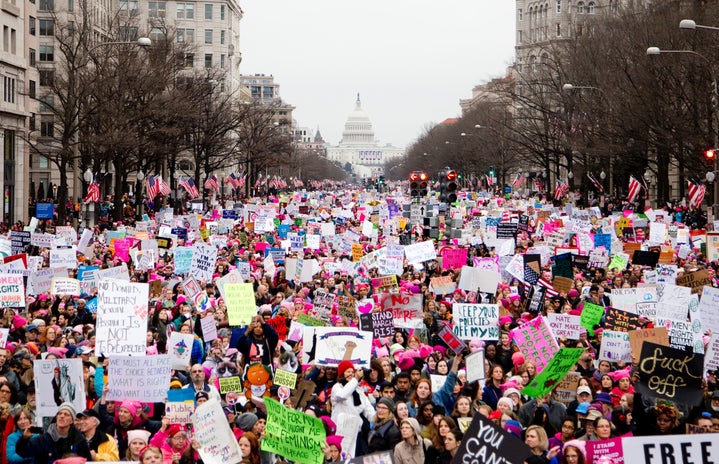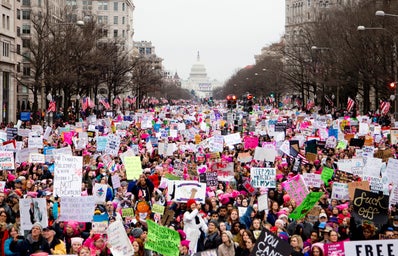Disclaimer: This article discusses acts of gender-based violence, such as sexual assault and domestic abuse. If you or a loved one have been a victim of sexual assault or domestic abuse, please call or text 1-800-656-4673 or visit rainn.org for support.
Over spring break, I had the opportunity to read “Silenced Women: Why the Law Fails Women and How to Fight Back” by Jennifer Robinson, an Australian human rights lawyer, and Dr. Keina Yoshida, an English attorney specializing in gender-based violence cases. When I picked this book, I didn’t know what to expect. I was browsing at Waterstones, one of the United Kingdom’s largest bookstore chains, and I felt drawn to the title. I hadn’t heard much discussion about #MeToo in a long time and was interested to hear an international perspective.
I am not exaggerating when I tell you this book was life-changing for me. The authors did an amazing job of combining policy analysis, cultural criticism, anecdotal evidence and personal interviews to paint such a vivid picture of the discrepancies within international legal systems that disproportionately impact victims of gender-based violence.
Throughout the book, the authors employ the familiar imagery of Justitia, the personification of justice in front of most Western courthouses. She is a woman who represents the objectivity of justice; she is blindfolded and holds the scales of justice in her hand. She reminds citizens that no matter their wealth, race, power, popularity or gender, justice delivers. The authors point out the irony of Justitia as a symbol of justice when women have historically been excluded and denied both rights and justice from legal systems across the globe.
One of the chapters that stood out to me was Chapter 5, “Contracted to Silence”. For this chapter, the authors interviewed Zelda Perkins, one of the first women to speak out against Harvey Weinstein’s continuous acts of sexual misconduct. In this chapter, both the author and Zelda discuss how Non-disclosure Agreements (NDAs) are sometimes used to silence women from speaking out about the abuse they endure.
I also particularly enjoyed Chapter 7, “Her Truth, Tried Twice.” This chapter is primarily written by Dr. Yoshida. She reflects on her time as a defense attorney for Amber Heard in the Depp v. Heard case. This chapter was particularly powerful as Yoshida recounts her experience with this case, specifically the misogyny and chauvinism both she and Heard endured. She also clarifies several misconceptions that circulated on social media and misconceptions about domestic abuse in general. This chapter was also important personally because I remember the amount of media coverage this case received and how it resulted in a cult following, spearheaded by cruel and misogynistic jokes at Heard’s expense.
After finishing the book, I reflected on everything the #MeToo movement has fought for, but I was also reminded of the many necessary steps to change the American legal system and culture around gender-based violence.
A statistic that stood out to me, and one I will remember forever now, is that one in three women will face some form of sexual or domestic violence within their lifetime. That’s 736 million women across the globe, which is 736 million too many.
In “Silenced Women,” the authors reveal that only 13% of sexual assault cases are reported to the police, and only 1% of those reports end in a conviction in the United States, United Kingdom and Australia. In society, many people reprimand women for speaking out about their sexual assault experiences, and many people contend that they should tell the police these stories rather than the general public. In addition, if a woman doesn’t speak out as soon as it happens, people will often say she waited too long and that she is making up the story for attention.
The reality is sexual assault cases are underreported because we do not have a legal system or culture that is hospitable and inclusive to sexual assault victims. Many women relive the most traumatic moments of their lives in court and are then interrogated about it. Victims often have to relinquish their privacy rights and confront their abuser in court. In addition, some victims cannot afford to go to court for these cases, and there is a lack of pro-bono attorneys willing to take on these cases. Moreover, many jurors still believe in harmful myths about sexual assault.
After reading this book, I kept asking myself, “How many more women?” How many more women will be silenced? How many more women won’t report or speak up about the violence they have faced? How many more women will become another statistic?
As a student, I want to take the steps to end sexual assault, specifically on my college campus and my community as a whole. “Silenced Women” ultimately reminded me that I want to make the one in three none in three.


